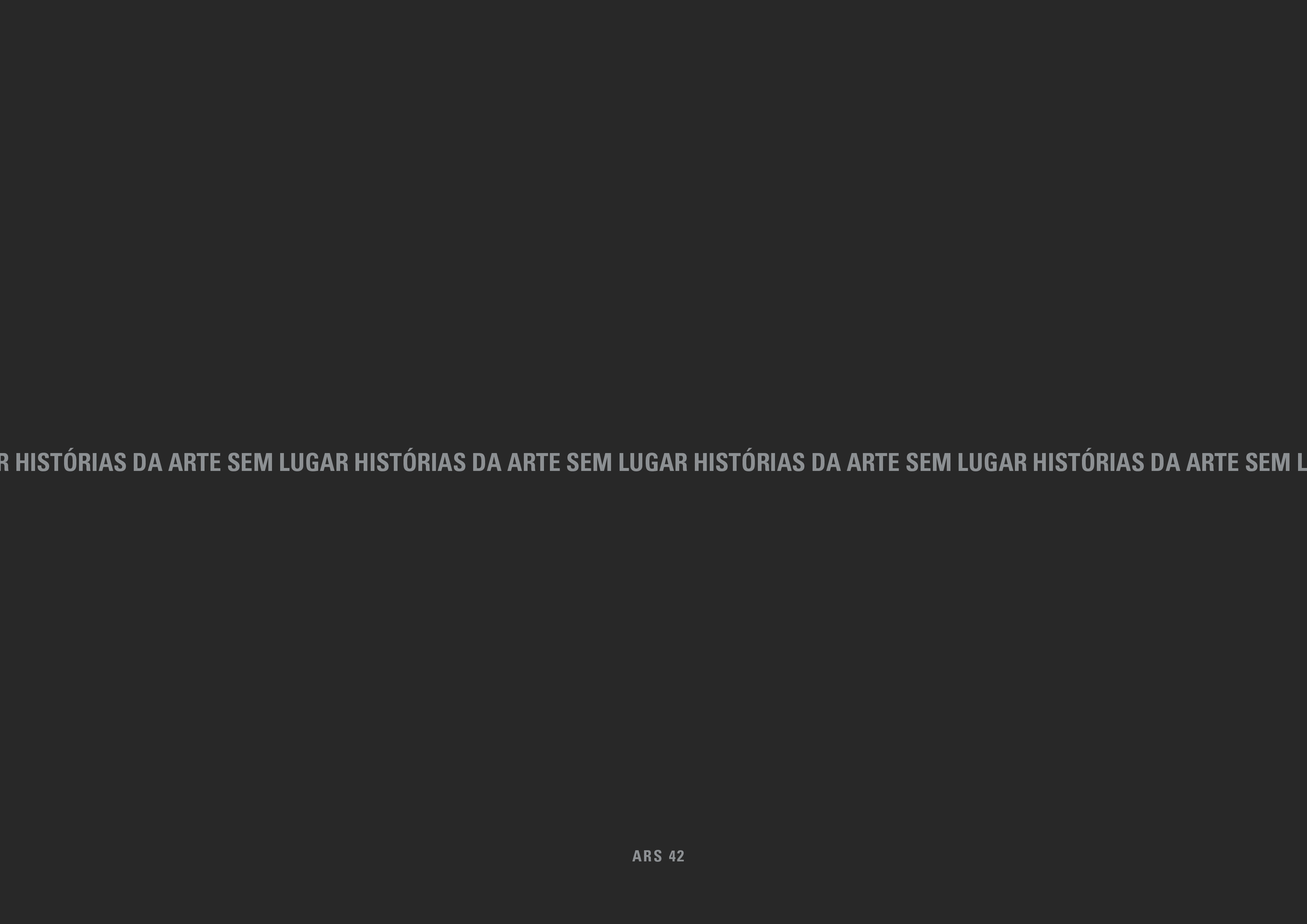Loking for Diva in the Global South. Feminism, Art and Politics
DOI:
https://doi.org/10.11606/issn.2178-0447.ars.2021.183784Keywords:
Feminism, Body as a Political Weapon, Artivism, Global South, Art HistoryAbstract
This article analyses the work Diva by Juliana Notari. In dealing with a giant vulva that emerges in the middle of an area that was once a sugarcane plantation, in Pernambuco, several waves of contestation have emerged. We intend to show that this artistic production is taken as a portrait of aesthetic and political artivism, but also to frame it within the processes of resistance that demarcate the Global South. It is from a qualitative methodology, based on a content analysis of the work of the artist Juliana Notari that we base our analysis, seeking to reflect and question the canons of masculine genius, as well as the evolution and consolidation of a social history of feminist art.
Downloads
References
BAKHTIN, Mikhail. Esthétique et théorie du roman. Paris: Gallimard, 2001.
BAL, Mieke. Travelling Concepts in the Humanities. A Rough Guide. Toronto, Buffalo, Londres: University of Toronto Press, 2002.
BARDIN, Laurence. Análise de conteúdo. Lisboa: Edições 70, 1979.
BERKERS, Pauwke; SCHAAP, Julian. Gender Inequality in Metal Music Production. Londres: Emerald Publishing Limited, 2018.
BUTLER, Judith. Gender Trouble. Feminism and the Subversion of Identity. Nova York: Routledge, 1999.
CHADWIC, Witney. Women, Art and Society. 4a ed. Londres: Thames & Hudson, 2007.
FRITH, Simon. Music and Identity. In HALL, Stuart; DY GAY, Paul. (eds). Questions of Cultural Identity. Londres: Sage Publications, 1996, pp. 108-127.
GONÇALVES, Fernando do N. Arte, ativismo e tecnologias de comunicação nas práticas políticas contemporâneas. Contemporânea, vol. 10, n. 2, 2012, pp. 178-193.
GUERRA, Paula. Gender is Dead, Pink is 4Ever: Gender, Differences and Popular Cultures. Keep It Simple, Make It Fast. Porto: Universidade do Porto, 2018.
GUERRA, Paula; OLIVEIRA, Ana. Heart of glass: Gender and Domination in the Early Days of Punk in Portugal. In VILOTIJEVIC, Marija Dumnic; MEDIC, Ivana (eds). Contemporary Popular Music Studies. Wiesbaden, Reino Unido: Springer, 2019, pp. 127-136.
GUERRA, Paula. Nothing Is Forever: um ensaio sobre as artes urbanas de Miguel Januário±MaisMenos±. Horizontes antropológicos, vol. 25, n. 55, 2019, pp. 19-49.
GUERRA, Paula. Women, Migrations and Rock Without Borders. Cahiers du MIMMOC. Mémoire(s), identité(s), marginalité(s) dans le monde occidental contemporain, vol. 21, colocado em linha em 15 de agosto de 2020. Disponível em: http://journals.openedition.org/mimmoc/4458 . Acesso em: 18 ago. 2020.
GUERRA, Paula et al. Women on the Move. Contributions to the Aesthetic- Political Activism Approach of Brazilian Migrant Women. Cahiers du MIMMOC. Mémoire(s), identité(s), marginalité(s) dans le monde occidental contemporain, vol. 21, colocado em linha 17 agosto 2020. Disponível em: http:// journals.openedition.org/mimmoc/5403. Acesso em: 18 ago. 2020.
GUERRA, Paula. So Close Yet So Far: DIY Cultures in Portugal and Brazil. Cultural Trends, vol. 30, 2021. Disponível em: https://doi.org/10.1080/09548963 .2021.1877085 . Acesso em: https://www.tandfonline.com/doi/abs/10.1080/095 48963.2021.1877085
JONES, Amelia. The Sexual Politics of the Dinner Party. In BROUDE, Norma; GARRARD, Mary D. (eds). Reclaiming Female Agency: Feminist Art History After Postmodernism. Berkeley: University of California Press, 2005.
LANGMAN, Lauren. Punk Porn and Resistance. Current Sociology, vol. 56, n. 4, 2008, pp. 657-677.
MCROBBIE, Angela. Settling Accounts with Subcultures: A Feminist Critique. Screen Education, vol. 34, 1980, pp. 37-49.
MCROBBIE, Angela. The Aftermath of Feminism: Gender, Culture and Social Change. Londres: Sage, 2009.
MOUFFE, Chantal. The Democratic Paradox. Londres: Verso, 2000.
PIANO, Doreen. Resisting Subjects: DIY Feminism and the Politics of Style in Subcultural Production. In MUGGLETON, David; WEINZIERL, Rupert (orgs.). The Post-Subcultures Reader. Oxford, Reino Unido: Berg, 2003, pp. 253-265.
POLLOCK, Griselda; TURVEY-SARON, Victoria (ed.). The Sacred and theFeminine: Imagination and Sexual Difference (New Encounters: Arts, Cultures, Concepts). Londres: I.B.Tauris & Co. Ltd, 2014.
RAINE, Sarah; STRONG, Catherine. Towards Gender Equality in the Music Industry. Education, Practice and Strategies for Change. Londres: Bloomsbury, 2019.
RANCIÉRE, Jacques. A partilha do sensível. Estética e política. São Paulo: Editora 34, 2015.
SEGATO, Rita L. Território, soberania e crimes de segundo Estado: a escritura nos corpos das mulheres de Ciudad Juarez. Estudos Feministas, Florianópolis, vol. 13. n. 2, mai.-ago. 2005, pp. 265-285.
USSHER, Jane. Fantasies of Femininity: Reframing the Boundaries of Sex. New Brunswick. Nova Jérsei: Rutgers University Press, 1997.
VICENTE, Felipa L. Arte sem história - mulheres artistas (Sécs. XVI-XVIII). ARTIS - Revista do Instituto de História da Arte, Lisboa, n.4, 2005, pp. 205-242.
VICENTE, Felipa L. Porque é que não houve grandes mulheres artistas. Revista Faces de Eva. ESTUDOS SOBRE A MULHER, n. 39, 2018, pp.183-189.
WRAY, Tim. The Queer Gaze. Wissenschaftliche Zeitschrift der Bauhaus- Universität Weimar, 4, 2003, pp. 69-73.
Downloads
Published
Issue
Section
License
Copyright (c) 2021 Cláudia de Oliveira, Paula Guerra

This work is licensed under a Creative Commons Attribution-NonCommercial 4.0 International License.
The responsibility for obtaining written permission to use in the articles materials protected by copyright law lies entirely with the author(s). Ars is not responsible for copyright breaches made by its collaborators.
The authors have the copyrights and grant the journal the right of the first publication, with the article licensed under the Creative Commons BY-CC License.
Licensees have the right to copy, distribute, display, and carry out the work and make derivative works from it, including with commercial purposes, granted that they give the due credit to the author or licensor, as specified by them.
Licensees compromise to inform the appropriate credit, provide a link to the license, and indicate if changes were made.
Respected the terms of the license, the licensors/authors are not allowed to revoke the conditions above mentioned.
After the publication of the articles, the authors keep the copyrights and the rights to republish the text exclusively in unpublished books and collections.



